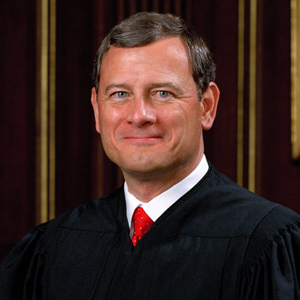Chief Justice Roberts: 'Incivility or disrespect' more frequent than 'overt sexual harassment' in the federal judiciary

Chief Justice John G. Roberts Jr.
Inappropriate workplace conduct isn’t pervasive in federal courthouses, but it is also not limited to a few isolated instances involving law clerks, according to Chief Justice John G. Roberts Jr.
When misconduct does occur in the federal judiciary, it “is more likely to take the form of incivility or disrespect than overt sexual harassment, and it frequently goes unreported,” Roberts wrote in his 2018 Year-End Report on the Federal Judiciary. The New York Times, the Washington Post and the National Law Journal have stories; How Appealing links to additional coverage.
Roberts’ report comes about a year after Judge Alex Kozinski of the San Francisco-based 9th U.S. Circuit Court of Appeals announced his retirement amid allegations of sexual misconduct by former law clerks and others. Kozinski was accused of inappropriate touching and making inappropriate sexual comments. He later apologized and attributed the problems to his sense of humor and candid way of speaking.
Roberts didn’t mention Kozinski, but he did note that law clerks can be at risk. “Recent events have highlighted that the very qualities that make the position of law clerk attractive—particularly, the opportunity to work with a senior member of the legal profession in a position of mentorship and trust—can create special risks of abuse,” Roberts wrote.
Ethics allegations against Kozinski were dropped because only sitting judges are subject to the judicial ethics code.
But a working group appointed by Roberts has recommended reforms, including changes to the conduct codes governing federal judges and judicial employees. Some of the recommendations have been implemented, and others are under consideration.
The U.S. Judicial Conference is currently considering changes to the conduct codes that would explicitly state that federal judges and employees may not engage in abusive or harassing behavior; must be civil and respectful in dealings with co-workers and subordinates; and may not retaliate against those who report misconduct, Roberts said.
Acting on another recommendation, the federal courts have hired a judicial integrity officer to monitor workplace misconduct and provide confidential guidance and counseling.
Roberts said individual courts are also acting to revise policies and adopt reforms. He also noted that the U.S. Supreme Court will supplement its internal policies and training programs based on initiatives and experiences of federal courts.
Roberts did not elaborate on Supreme Court reforms. Eighty-three ethics complaints made by members of the public against Justice Brett M. Kavanaugh following his tumultuous nomination hearing were dropped in December because federal laws governing judicial conduct don’t apply to Supreme Court justices. Some of the complaints had alleged Kavanaugh made false statements under oath and made inappropriate partisan statements during the hearing.
The working group will remain in place over the next year to monitor progress and success, Roberts said. “The job is not finished until we have done all that we can to ensure that all of our employees are treated with fairness, dignity, and respect,” Roberts said.



